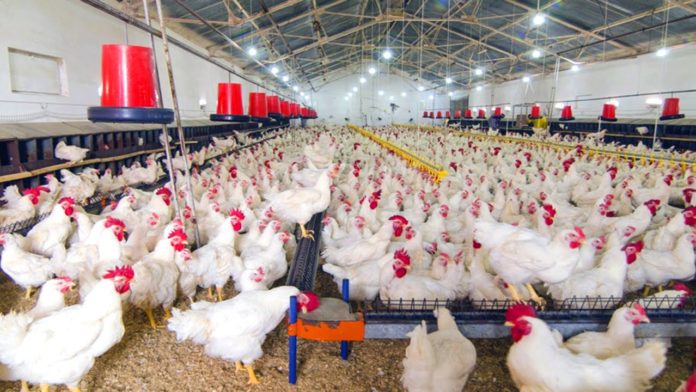
By Nick Barnes
If there is one moral – if one would call it that -from the devastating impact of chicken portion imports on Africa’s poultry industry is the need to read the fine print in future bilateral trade agreements between individual countries and the EU. African countries overlooked this and their cost of this oversight has been colossal.
In the atmosphere of high emotions, it is easy to blame EU or countries in other parts of the world with huge poultry industries. However, as it has emerged, African countries are complicit in the creation of the current crisis or co-authors of their own fate when one considers decisions that then then ministers of trade took over two decades ago.
African countries were overexcited for their poultry products to have access to lucrative markets of the West, which they could not previously without barriers. The US dollars gained would translate in more revenue in local currency, so they ingenuously assumed.
Agreements were signed without necessary due diligence. This would turn to be mortgaging the sovereignty of the local poultry industry to, at best, the lowest bidder, or at worst, for free.
The biggest oversight
Palpably, the biggest oversight was ignoring the reality that the playing field in was not level in poultry production.
Poultry producers are highly subsidised in EU, and indeed, most western countries. This is a fact which African countries may have overlooked when signing so-called economic partnership agreements with the EU or EU countries. The EU demanded the systematic removal of both tariff and nontariff barriers in Africa to EU poultry meat products.
In his analysis, fair trade proponent, Chris Ward, a Canadian-based health policy and international development consultant and a member of FairPlay, laments the scale of the oversight and the naivety of the decision: “Seduced by EU promises of barrier-free access to trade with Europe, many African countries have been cajoled into lowering their own trade barriers, which protect sensitive agricultural industries such as poultry. “This observation coming from someone who was Government House leader and minister of education in Canada should not be taken lightly.
Later, the hasty signing of agreements would turn to be carte-blanche for unfettered dumping of large volumes of brown meat portions (unwanted frozen chicken parts and offal) in African countries at prices which bear little relationship to production costs in the EU and/or lower than they are selling the same product in their home markets. In South Africa, prior to COVID-19, the GM of South African Poultry Association (SAPA) broiler organisation, Izaak Breitenbach, recently said dumping margins of up to dumping margins up to 201% had been found.
Effectively, what African countries thought was signing ‘win-win ‘bilateral trade agreements’ has turned to be grossly lop-sided in reality. EU countries only import 7% of their poultry producers, the rest is source domestically.
The chicken come home to roost
The chickens have come home to roost (no pun intended). The oversight of African countries when signing the trade agreement has occasioned a crisis of epic proportions on poultry production in African countries. In many countries, the situation paints a sorry picture of decimation of local production.
Unable to compete, local producers have scaled down production or closed for good. This has resulted in massive job losses as producers have been faced with no other option but to lay off staff to remain sustainable. Two countries that are classic case studies of this are South Africa and Ghana.
South Africa has been losing a lot annually, reaching a record of R6.1 billion (US$ 403 million) in 2018. This, in a country with an unemployment rate of 40%, is devastating. The money could have been invested in developing or growing local production and create jobs.
In Ghana, dumping has destroyed the domestic poultry industry. 20 years ago, Ghanaian producers used to supply 100% local consumption, now they are hanging on to 5% of market share, which even is under threat.
Find more on the article:Farmers Review Africa March-April 2021 Edition
The benefit of hindsight
While countries are moving heaven and earth to save their local poultry producers, it is important to reflect on how what go them to the current state. With the benefit of hindsight, it is rational for Africa countries to own up to their mistake and admit that they could have done the necessary due diligence prior to signing the agreements. Presumably, future trade negotiations will be done better from an informed position.
Ideally, all trade partners are obliged to play the game by World Trade Organisation rules. Sadly, the reality is different: in the dog-eat-dog world trade arena, as the poultry crisis has demonstrated, rules are seldom followed, as big economies, using their might, flout them with little or no recourse, to benefit their industries.
Side bar
Levelling the playing field
South African producers have been unequivocal in condemning unfair trade practices by producers from the EU and other countries. In response, South Africa has imposed 82% tariffs on imports from Brazil and the USA, while creating conducive conditions to develop local capacity to give South African producers some room to breathe. This is effort is ‘“Levelling the playing field”, as the SAPA calls it. “When it comes to food security, job creation and poverty alleviation, domestic production has to be prioritised in any economy, with the buy-in and support of all trading partners.”
Granted, rebuilding or regaining whatever capacity was lost won’t be an event buy a painful process. Inevitably, they will be sacrifices too, as the saying goes “You can’t have it both ways,” as recent impact of tariffs on local poultry prices are a case in point.
It would be interesting to observe how things will pan out in South African poultry end of first quarter of 2022.








